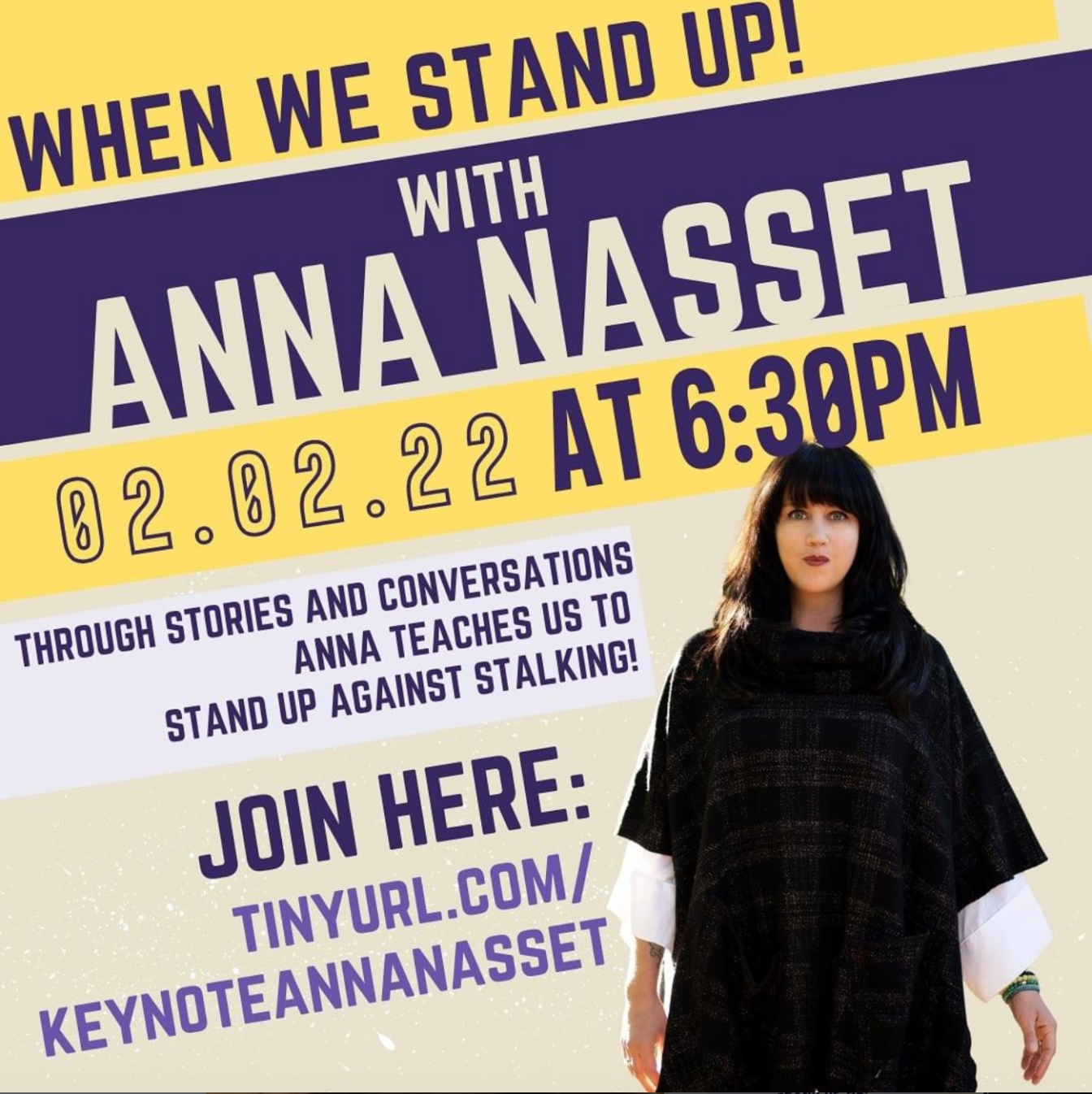Content warning: references to sexual violence, stalking and other potentially triggering experiences
In a virtual event Wednesday evening, stalking awareness advocate Anna Nasset gave a speech on common misconceptions about stalking and how to help those suffering from it.
Nasset is an international speaker and anti-stalking activist who provides training on stalking, sexual assault and victim services through her organization Stand Up Resources. The University of Wisconsin Promoting Awareness Victim Empowerment, also known as PAVE, invited Nasset to be the keynote speaker for the virtual event.
Nasset began the speech with an emotional account of her personal experience with stalking. After being stalked for years, Nasset became one of few women to have successfully pursued charges against her stalker. Her stalker received the longest sentence in the country’s history for stalking— 10 years, Nasset said.
Not enough, not yet: UW makes progress on sexual assault response, but shortcomings persist
Now, Nasset is a major advocate for bystander intervention. Bystander intervention involves asking how individuals can a make positive change themselves against a culture that promotes gender-based violence, Nasset explained.
Nasset encouraged bystanders to act using “the four D’s” as their guide— distract, delegate, delay and direct. These strategies involve a bystander intervening in a situation that they believe may result in stalking or a gender-based crime.
To distract means to turn a potentially harmful conversation to a different subject or to present a new activity such as getting food, Nasset said. If someone is uncomfortable intervening, they should delegate the responsibility to another person— such as law enforcement or other friends.
Another strategy is to delay the situation, specifically when it is unclear if intervention is needed, Nasset said. One example is taking the potential victim to the bathroom. But the best way to intervene is to directly ask those involved what is going on.
Saying yes to providing support for a stalking victim— even if it seems irrational— is an important part of being an ally. Oftentimes, victims of stalking are told that they are overreacting when looking for support, Nasset explained. Walking to class with friends, home with them in the evening and walking them to their cars is a good way of directly supporting stalking victims.
UWPD arrests Nebraska man for sexual assault in UW residence hall
“Support them and be there— even if it makes no sense,” she said.
Nasset said anti-stalking activism involves changes to language, behavior and media consumption that encourages a culture that romanticizes or accepts stalking or gender violence. Individuals can do this by stopping the casual use of the term “stalking,” avoiding catcalling or intimidating language and intervening when seeing predatory behavior.
Social media, television and film at times can subtly promote gender-based violence, Nasset said, giving the popular Netflix show “You” and the inaccurate nomenclature of “social-media stalking” as examples.
“All we can do is keep learning and shifting and changing,” Nasset said.













